Best Concrete Services List To Offer To Clients in 2025
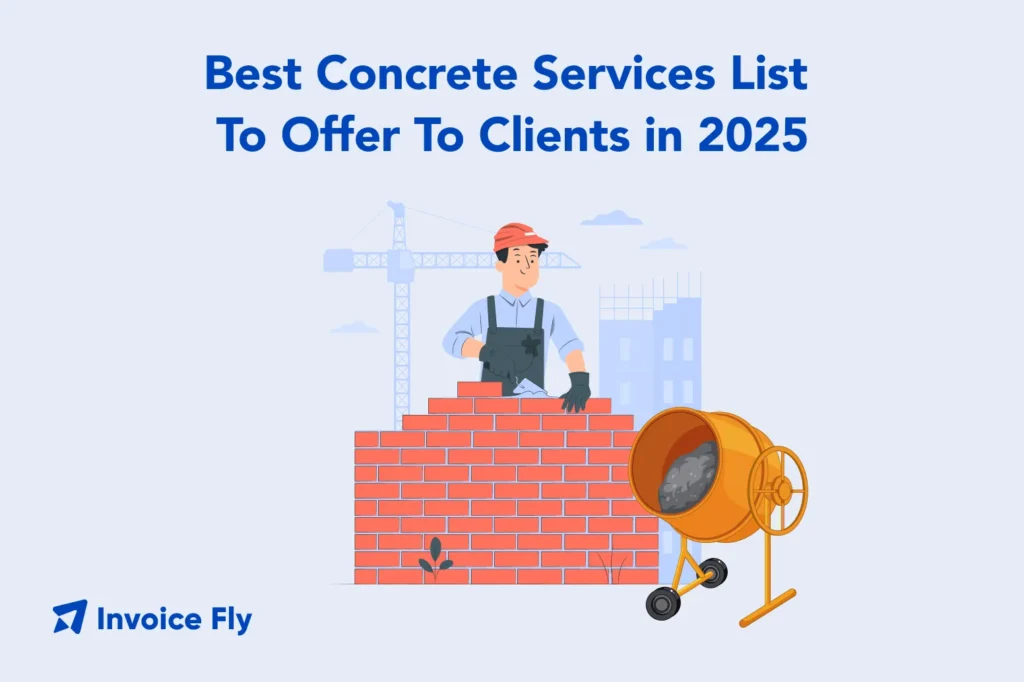
Table of Contents
- What is a Concrete Business?
- Why is it Important to Have a Concrete Service List and Pricing Strategy?
- Different Types Of Concrete Construction
- Types Of Concrete Used
- Concrete Construction Services
- Residential Concrete Work / Services
- Managing Your Concrete Business Operations
- Final Thoughts
- FAQs about the best concrete services to offer in 2025
Thinking about starting a concrete business or growing the one you’ve already got? You’re in the right place. The concrete industry is booming, and smart business owners know that offering the right services is the key to standing out as homeowners and businesses invest in durable, long-lasting solutions for their properties.
In this guide, we’ll break down the top concrete services that are in high demand for 2025. From smooth residential driveways to tough commercial foundations, you’ll learn which jobs bring in the most profit. And how to build a service list that keeps your schedule (and your wallet) full.
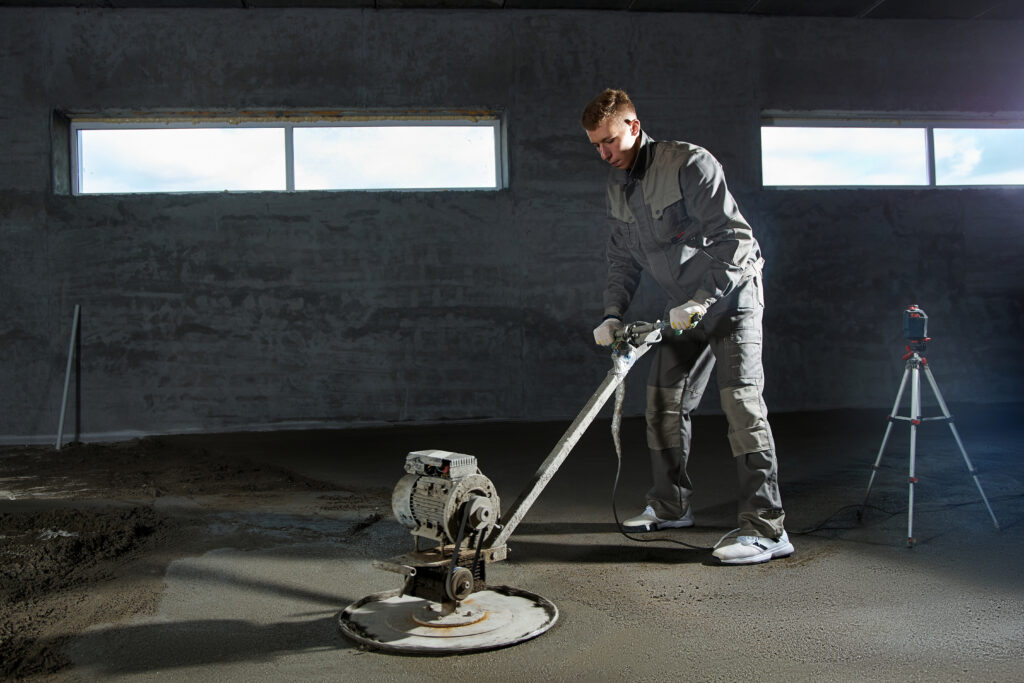
What is a Concrete Business?
A concrete business (or concrete contractor) handles mixing, pouring, and finishing concrete for construction projects. These companies work with both residential and commercial clients, providing everything from sidewalk installation to bridge foundations.
Most concrete companies manage the full process, from preparing the site and setting the forms to finishing the surface. Some stick to one area, like decorative overlays or structural concrete, while others offer a wide range of concrete services.
If you’re exploring how to start your own concrete business, learning about the different services you can offer is a smart first step.
Why is it Important to Have a Concrete Service List and Pricing Strategy?
A clear concrete service list makes it easy for potential clients to know exactly what your business offers. If someone needs a stamped concrete patio or a commercial slab foundation and they see it on your list, they’re more likely to call you.
Having a defined list also helps you focus your marketing and grow your expertise in high-demand niches, rather than trying to do everything.
Pair your service list with a solid pricing strategy to stay competitive without undercharging. Each concrete job comes with different time, skill, and material costs. Your pricing should reflect that so you can protect your profit margins.

Different Types Of Concrete Construction
The concrete construction industry encompasses several major categories:
Heavy Construction
This includes massive projects like airports, dams, and factories. Heavy concrete construction requires large crews, bonding capacity, and heavy-duty equipment. While it’s lucrative, the entry barrier is high.
Bridge Construction
Building bridges requires precision forming, structural know-how, and working under tough conditions like water or traffic. These jobs often come through public contracts with strict safety standards.
Highway Construction
Highway concrete work involves large-scale paving, barriers, and drainage systems. Government-funded and steady, but competitive. You’ll need to handle high-volume pours quickly and accurately.
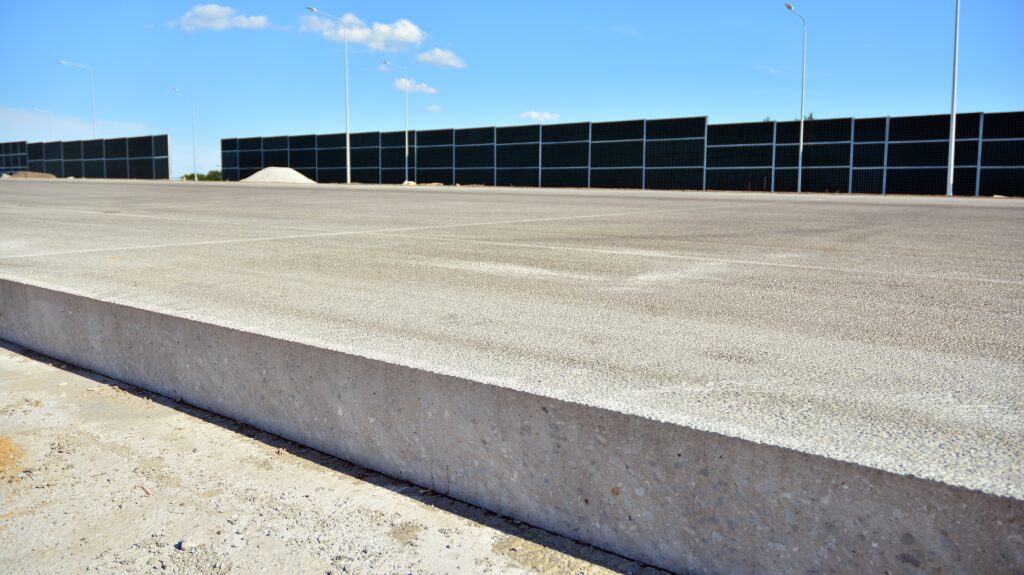
Other Civil And Commercial Construction
This category includes schools, hospitals, and city buildings. It blends technical and decorative work, often without the strict requirements of heavy construction. This makes it accessible for growing concrete companies.
Residential And Commercial Construction
These projects are ideal for smaller concrete businesses. Services might include home foundations, driveways, patios, and sidewalks, as well as work for small offices and retail buildings.
Types Of Concrete Used
Choosing the right type of concrete is key for both performance and pricing. Whether you’re pouring a driveway or building a bridge, the mix you use can impact strength, durability, and cost. Here are the most common types used in residential and commercial concrete construction:
Ready-Mix Concrete
This is the most popular option for both residential and commercial projects. It’s mixed at a plant and delivered ready to pour—saving time and ensuring consistency. Ideal for driveways, sidewalks, patios, and small foundations.
Best for: General concrete construction like slabs, footings, walkways.
High-Strength Concrete
Made with a lower water-to-cement ratio and often additives, this concrete supports heavy loads. It’s used in tall buildings, bridges, and industrial foundations where standard mixes just won’t cut it.
Best for: Skyscrapers, bridge supports, heavy-duty commercial work.
Lightweight Concrete
Made with a lower water-to-cement ratio and often additives, this concrete supports heavy loads. It’s used in tall buildings, bridges, and industrial foundations where standard mixes just won’t cut it.
Best for: Skyscrapers, bridge supports, heavy-duty commercial work.
Decorative Concrete
This mix uses lightweight aggregates to reduce weight without sacrificing strength. It’s ideal for upper floors, roof decks, and projects where reducing structural load matters.
Best for: Roof slabs, elevated decks, multi-story buildings.
Specialty Mixes
In addition to these core types, some concrete companies also use more specialized mixes depending on the project:
- Self-Consolidating Concrete (SCC): Flows easily into forms without vibration—great for complex architectural shapes.
- Pervious Concrete: Allows water to pass through, reducing runoff—ideal for eco-friendly parking lots or walkways.
- Shotcrete: Applied through a hose at high velocity, often used for retaining walls, swimming pools, or tunnels.
Concrete Construction Services
Concrete Forming
Forming is the first and most critical step. It shapes the concrete during curing and affects its final strength and appearance. Skilled form carpenters are especially important for complex or curved projects.
Concrete Cutting
Cutting involves specialized tools like diamond-blade saws to remove or shape concrete precisely. This is crucial for renovations, utility lines, and HVAC installs. It pairs well with core drilling services.
Concrete Demolition
Demolition crews break up and remove old concrete before new work begins. This includes managing debris and ensuring surrounding areas aren’t damaged. It’s tough, but steady work in high-renovation areas.
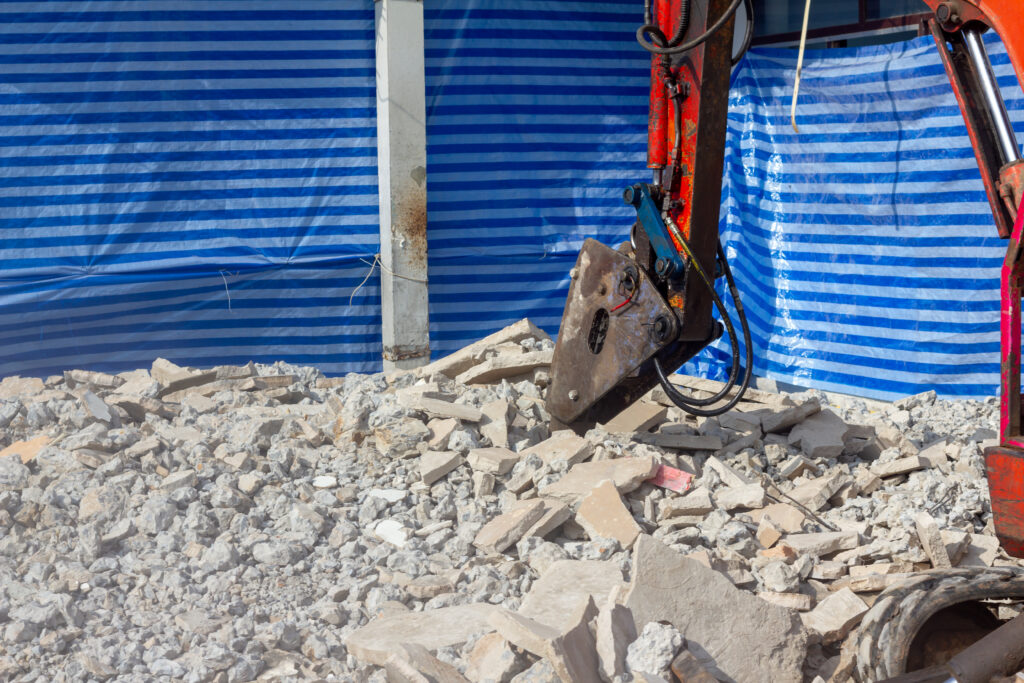
Residential Concrete Work / Services
Many new concrete businesses start with residential services. They’re lower cost and easier to enter. Here are top options:
Stamped Concrete
Stamped concrete mimics stone, brick, or wood patterns. It’s decorative, in-demand, and profitable. One Phoenix-based LLC, for example, built 40% of their revenue around this single service by targeting homeowners wanting more curb appeal.
Pool Decks
These require drainage, slip resistance, and careful design. Add-ons like colored concrete or exposed aggregate make these projects even more appealing.
Concrete Patios
Patios are simple to install and easy to upsell with decorative features. Work often leads to referrals or extra projects like steps and walkways.
Concrete Counters
Concrete countertops are trending in kitchens and bathrooms. They’re cast in molds and finished to look sleek and modern. Though time-intensive, they allow for high-end pricing.
Maria, a contractor in Denver, specializes in concrete countertops and commands $150-200 per square foot for her work. She found that focusing on this niche allowed her to build expertise and a reputation that supports premium pricing.
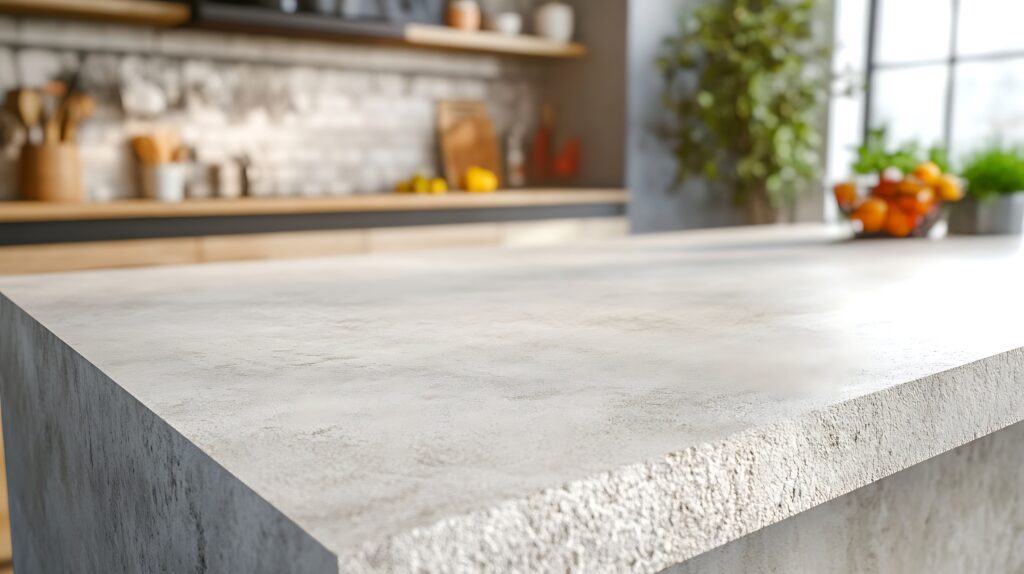
Concrete Floors
Polished concrete floors are growing in popularity for both homes and businesses. They’re low maintenance and cost-effective long-term. You’ll need grinding and sealing tools, but you can charge top dollar.
Stained Concrete
This service adds colour and style to plain concrete using acid- or water-based stains. Great for remodeling projects and budget-friendly upgrades.
Decorative Concrete Overlays
Overlays refresh old concrete with a new surface layer. They’re thinner than slabs and work well for clients who want a makeover without total removal.
Colored Concrete
Pigments can be added directly to the mix for a uniform color that won’t wear away. These are perfect for driveways, patios, or themed commercial spaces.
Anya from Sacramento, a former interior designer, transitioned into decorative concrete overlays after renovating her own patio. She now runs a small concrete business specializing in overlays and colored finishes. What started out as just fixing her own backyard, now has her booked three months out doing custom patio designs for others!
Polished Concrete
Polishing uses grinders to create a glossy, durable finish. While equipment can be pricey, many businesses start by renting before buying their own.
Managing Your Concrete Business Operations
Being a great concrete contractor is about more than just pouring mix—it’s also about managing your business like a pro. That includes:
- Creating detailed project estimates
- Sending professional invoices
- Tracking jobs and expenses
Using a tool like Invoice Maker helps you keep everything organized and gets you paid faster. You can easily break down materials, labour, and services for clients—and keep your books clean for tax season.
Also, consider these essential business practices:
- Get licensed in your state
- Get insured to protect your business
- Hire wisely—check the latest concrete worker salary ranges
- Choose a great company name that reflects your services
The right systems and planning can help turn a small concrete crew into a growing LLC with long-term success.

Final Thoughts
Starting or growing a concrete company is all about offering the right mix of services, managing your business well, and delivering solid results. Whether you’re pouring driveways or polishing commercial floors, each job helps you build your brand and your bottom line.
Start simple, focus on quality, and grow your offerings as your experience (and equipment) expands. The demand for concrete for construction—from decorative patios to heavy civil work—isn’t slowing down in 2025.
With the right skills, tools, and service list, your concrete business can become a strong, profitable part of your local construction scene.
FAQs about the best concrete services to offer in 2025
Residential services like patios, sidewalks, and stamped concrete are popular and easier to get into without heavy equipment.
It depends on your location and service. Most charge $6–$12 per square foot, while decorative jobs often fetch more. Learn how in this pricing guide.
Yes, most states require a contractor’s license, especially for jobs above a certain dollar amount. Check out our licensing guide.
Basic hand tools (trowels, floats, mixers), forms, and safety gear. You can rent big items like grinders or saws until you’re ready to invest.
Use local ads, social media, and partnerships with general contractors. Word-of-mouth and good reviews go a long way, too.
